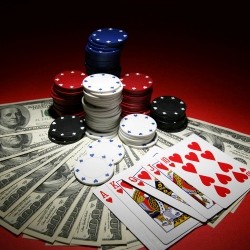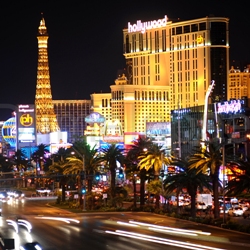Is Poker Tournament Staking Under Threat In Nevada?

A new anti-money laundering bill (SB40) has been filed on behalf of the Nevada State Gaming Control Board (NGCB) designed to make it illegal for a person to place a bet on behalf of an unlicensed third party. Whilst not specifically an anti-gambling or anti-poker bill, the piece of legislation if passed could threaten to put an end to the practice known as ‘staking’ in poker.
Targeting Sports Betting Proxies
The intended target of SB40 are those sports betting proxies who place wagers on a ‘race, sporting event or future contingent event’ without holding a proper NGCB state license. However, based upon the bills current language it could equally apply to a poker tournament, with the bill making such staking a felony in Nevada. Naturally, SB40 has put some tournament poker players on edge, especially with violation of the law punishable by:
“..imprisonment in the state prison for a minimum term of not less than 1 year and a maximum term of not more than 6 years, or by a fine of not more than $5,000, or by both fine and imprisonment.”
Why Make Staking Illegal?
One reason the Nevada State Gaming Control Board may be moving towards making staking illegal has to do with satisfying a federal agencies stipulation, including that of the Internal Revenue Service (IRS), to clampdown on the big money which passes through casinos in the Silver State. In 2013, for instance, Las Vegas Sands had to pay $47.4 million to the US Department of Justice for allowing Chinese-Mexican businessman Zhenli Ye Gon to lose $84 million of funds with suspected links to drug trafficking at the property between 2004 and 2007. Therefore, by closing the current staking loophole the NGCB is attempting to protect state casinos from the scrutiny of federal authorities, and as US Attorney André Birotte Jr warned at the time of the Las Vegas Sands case:
“All companies, especially casinos, are now on notice that America’s anti-money laundering laws apply to all people and every corporation, even if that company risks losing its most profitable customer.”
Could Damage Tournament Poker In Nevada
If the new bill does pass into law, it could potentially cause extreme damage to the live tournament scene in Nevada, including the state’s annual showcase tournament series called the World Series of Poker. After all, staking is a popular practice amongst poker players as it allows them to receive money towards tournament buy-ins in return for selling part of their action to investors. Not having to put in the whole buy-in themselves is a shrewd move by poker players who would otherwise find themselves further at the mercy of variance, and this is especially true for the most expensive tournaments which have become increasingly popular of late, including $50,000 and $100,000 buy-in high roller events. Likewise, it would be unusual to see many, if any pros, put up the $1 million fee to enter the WSOP Big One for One Drop charity event.
Take Antonio Esfandiari, for instance. While it’s not known exactly how much of his own money he used to enter the $1 million buy-in event last year, after busting out he described experiencing “..a deep intense pain which just would not go away. I couldn’t sleep, I couldn’t eat.. it was very, very painful.”
Even one of tournament poker’s wealthiest superstars with a more than $50 million fortune behind him felt the need to seek backers for his entry fee to One Drop, and ahead of the tournament sold 50% of his action to backers.
Early Days
While many poker players and tournament organizers are understandably nervous as to the prospect of SB40 finding its way into law, there is still a long way to go before that might happen. Firstly, the bill has only just been introduced, and will still have to make its way through the Judiciary Committee, and be subject to the normal legislative process including amendments. Secondly, SB40 is not seen as a must-pass piece of legislation, and lastly even if eventually passed it would still be left to the discretion of Nevada’s law enforcement to enforce the legislation. Needless to say, there may not be much appetite for chasing down regular tourists and poker players competing at tournaments such as the Nevada’s showcase WSOP Main Event.










